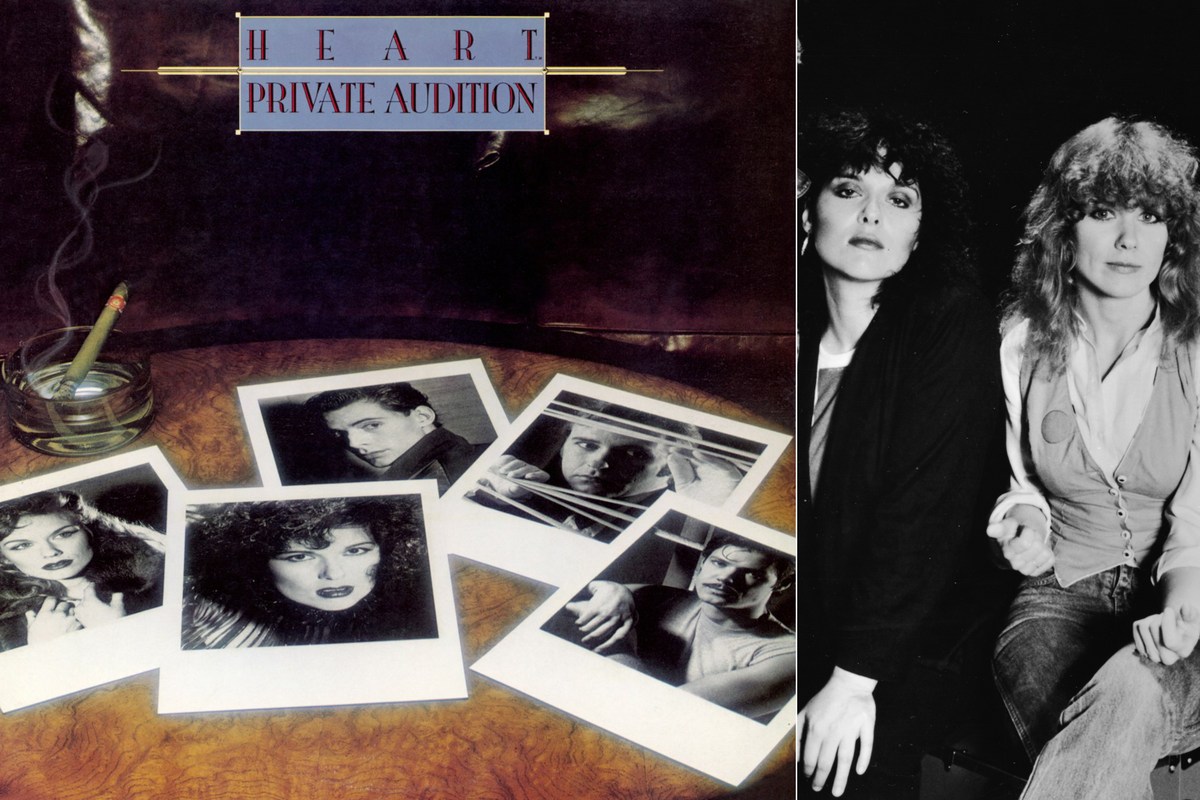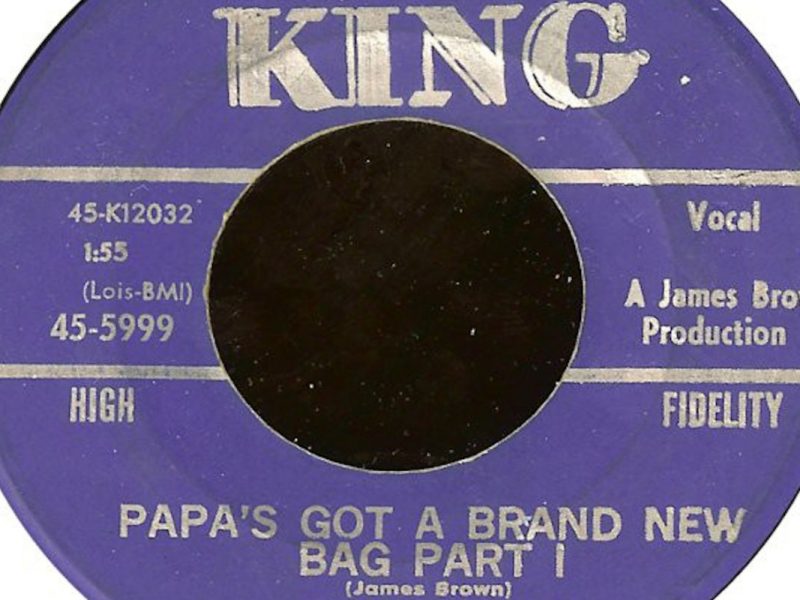Conventional wisdom points to Private Audition as the point where Heart started to break — at least for a little while. But a case can be made that the group’s sixth studio album deserves at least a slightly better legacy.
There’s no question that it was the first outright commercial failure for the band fronted by sisters Ann and Nancy Wilson. During the ’70s Heart reeled off four straight platinum or better albums and were a radio fixture with the likes of “Magic Man,” “Crazy on Your,” “Barracuda” and “Straight On.” Bebe Le Strange was a warning sign in 1980, however; it debuted at No. 5 on the Billboard 200 but was certified “only” gold — a success by most measures, but not in comparison to its predecessors. Greatest Hits/Live later in the year regained a bit of momentum, but Heart’s health was still in question as they began working on Private Audition.
The 10-track set was Heart’s first without producer Mike Flicker, who’d been the virtual sixth member since their 1975 debut, Dreamboat Annie. Heart started working on Private Audition with other producers at the insistence of their label, Epic Records, but sessions with studio heavy hitters Bob Ezrin and Jimmy Iovine did not gel; Iovine in particular felt there were no hits in what had been recorded. So the Wilsons and friend Sue Ennis — their partner in the production team Connie — and Heart member Howard Leese took the reins. In the band memoir Kicking & Screaming, Nancy admitted she felt “the resulting album suffered as a result [of the change].”
“We probably weren’t in our right minds very well,” Ann told UCR during 2016, after Heart released re-recorded versions of the Private Audition tracks “City’s Burning” and “One Word” for their Beautiful Broken album. “I know I was doing a lot of partying in those days. I don’t think the original version had my own self on them.” She also told Rolling Stone “that whole…era was when I was at my most lost. In terms of substances and alcohol, stuff like that, I don’t feel I was able to focus that well. I was OK live, but I couldn’t focus enough to go into the studio and make it work. And so some of those songs, they were good songs, but they got lost.”
Private Audition‘s No. 25 peak on the Billboard 200 was the lowest of the band’s career to date (1983’s Passionworks slipped another 14 slots). It sold only about 400,000 copies, according to Ann, not even going gold. The single “This Man is Mine” stalled at No. 33 on the Billboard Hot 100 and No. 16 on the Top Rock Songs chart. (The opening track, “City’s Burning,” fared a bit better thanks to radio play.) The greatest indignity came when the band hit the road to promote Private Audition and was blown off the stage most nights by John Cougar, whose American Fool album was one of the year’s hottest rock releases. According to Ann, Cougar (now Mellencamp) suggested at one point that the two acts swap positions and let him close each night.
Listening back to Private Audition 40 years later, however, prompts some critical revision. There are unquestionably lows on it — in particular the cringe-worthy rocker “Fast Times,” submitted but blessedly excluded from the Fast Times at Ridgemont High soundtrack, and the naive social commentary of “America.” But even Heart’s fiercest critics have to acknowledge — perhaps grudgingly — their bold approach to Private Audition. It’s an album filled with sonic and stylistic experiments — some, yes, naive or not fully realized, but still ambitious. Its variety did not connect with where rock was in 1982, and it would be three years until Heart found that multi-platinum sweet spot, but we give you half-dozen reasons why Private Audition does not entirely, well, suck…
“City’s Burning”
It’s not quite a “Barracuda”-level anthem, but it’s a good, loud, stomping start to the set and the best and certainly the most raw of the album’s smattering of hard rock tracks. Its lyrics, meanwhile, reflect the anger the Wilsons felt after John Lennon’s assassination a year and a half prior — bristling more than, say, Elton John’s “Empty Garden (Hey Hey Johnny),” released a week prior.
“Perfect Stranger”
Acoustic and lush, this straddles the line between organic ’70s ballad and the kind of swelling, quintessential ’80s power ballads that later became Heart’s stock in trade. It’s also arguably Ann Wilson’s best vocal performance on the disc. The troupe’s self-production was a benefit in this case, keeping the song from turning too ornate and overwrought.
“Angels”
A stark, folky paean with Ann accompanied only by Nancy and Leese’s acoustic guitars and the former’s backing vocals. Private Audition was the last album to feature founding bassist Steve Fossen and Derosier, who’d been on board since Dreamboat Annie. The lineup upheaval on the horizon makes “Angels”‘ prosaic moment even more prophetic.
“The Situation”
Side two, for you vinyl aficionados, kicks off with a progressive-flavored rocker co-written by Nancy Wilson and soon-to-be-ex boyfriend, drummer Michael Derosier. Its chord progression sounds like something from the Rush songbook, complete with Moog drums and a synthesizer break. Nancy’s lead vocal, meanwhile, laments the sensory-numbing impact of mass media, though Neil Peart likely wasn’t threatened by lines “games read green on table screens, charged and powered.”
“Hey Darlin’ Darlin'”
The title makes you want to skip it, but this acoustic-flavored romantic testimonial, with synthesizer strings and Ann Wilson’s lone flute performance on the album, would fit on Dreamboat Annie or Dog & Butterfly. The most redeeming moment for old school Heart devotees.
“One Word”
Back to mellow, with a tight, dynamic arrangement and a liquidy vibe that feels fresh for Heart. Howard Leese’s brief guitar solo is one of the best on the album, too.



